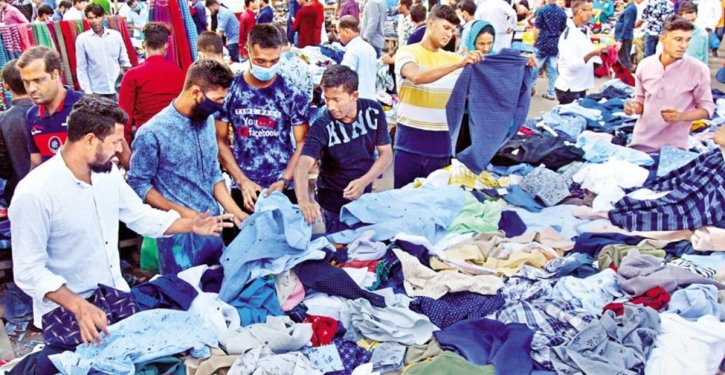Bangladesh to ban import of used clothes to maintain economic status
Asif Showkat Kallol || BusinessInsider

File photo
As Bangladesh is graduating from LDC to a lower middle income country, the government has moved to limit import of used clothes this year before imposing a full ban from 2026.
A senior commerce ministry official said importing old clothes for the use of local markets is a disgrace for a country like Bangladesh, which is the second largest exporter of readymade garments after China.
Md Hafizur Rahman, additional secretary of the commerce ministry and Director General of WTO Cell, said Bangladesh’s socio-economic situation has improved significantly in the last one decade and local industries have expanded massively.
“Our RMG and textile sectors have been producing world class clothes. So, we do not need to import old clothes in the country,” Rahman told the Business Insider Bangladesh on Tuesday.
The bureaucrat said new provisions will be incorporated in the new import policy.
The Ministry of Commerce will issue a new ‘Import Policy Order 2021-24’ this year. For this, the work of drafting the policy and taking the opinion of the stakeholders have been completed.
After the vetting of the Law Ministry, the new import policy has been sent to the cabinet division for approval. After that, the policy will come into effect through a gazette notification.
Under the existing policy, an importer could import a maximum two tonnes of old blankets. Under the new rules, it is going to be halved.
Presently, an importer can import a maximum of 6 tonnes of sweaters, ladies cardigans, zipper jackets (men’s), and men’s trousers. Under the new rules, it will be halved to 3 tonnes.
In addition, a maximum of one tonne of synthetic branded cloth shirts will be allowed to import instead of two tonnes.
The number of importers of these products across the country will also come down from 6,000 to 3,000, according to the new policy.
Meanwhile, importers of these used cloths requested the government not to ban import, saying that it is being done by many countries and poor people in Bangladesh will be deprived of having clothes at cheaper prices.
“We have already appealed to the high-ups of the government not to cancel the provision of import of used clothes as the country’s import under this category is very insignificant,” said Abul Kalam, president of Chittagong-based old clothes importers’ association.
Only Tk 25 crore worth of used clothes is imported in the country per year, he added. He said the Russian Federation is still importing used clothes from different developed countries and neighbouring India was once the largest importer of used clothes.
The USA, UK and Germany are the top three exporters of used clothes.
In 2015, the World Bank recognised Bangladesh as a low-income country. Three years later, in 2018, the United Nations announced that Bangladesh acquired the initial qualification to become a developing country. Now Bangladesh is in the final stage of achieving its final qualification for LDC graduation, which will come into effect from 2026.
According to the Bangladesh Institute of Development Studies (BIDS) in 2015, 20 percent of the country’s population or 3.58 crore people were middle class. And, the number of middle class people will increase to one-third of the population by 2030.
























